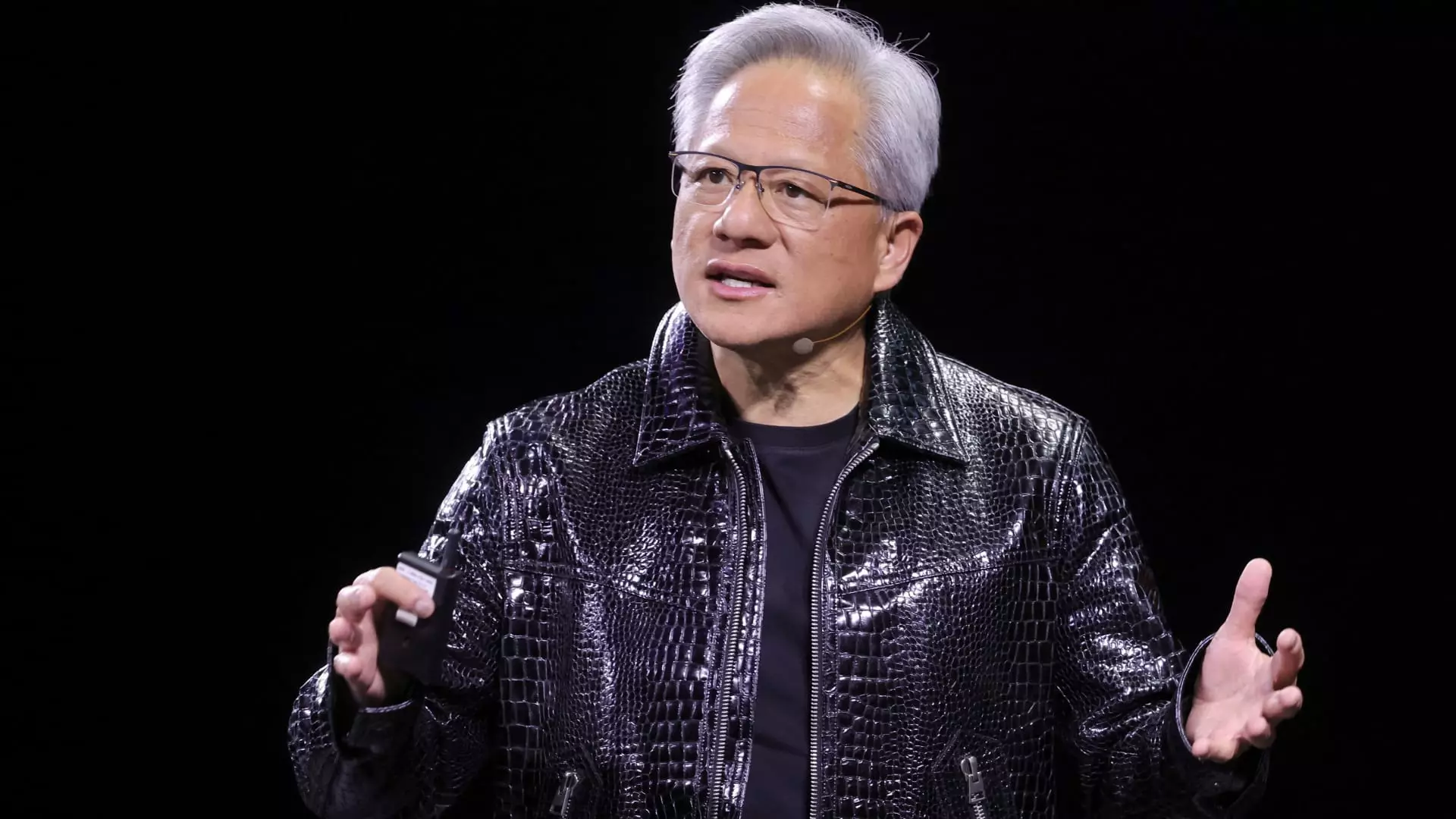In the fast-paced world of technology, where optimism often dances with skepticism, Nvidia’s CEO Jensen Huang recently found himself navigating the treacherous waters of quantum computing rhetoric. In a move that was expected to reassure investors, Huang sought to rectify his earlier projections that suggested a daunting 15 to 20-year timeline for practical quantum applications. However, rather than placating the anxiety surrounding quantum stocks, his comments sparked what can only be described as a shockwave of disappointment in the investor community. Stocks in the quantum realm plummeted, showcasing the volatility and fragility of this ambitious sector. It’s as if Huang’s well-intentioned efforts to pivot from his previous stance backfired catastrophically, leaving many investors scratching their heads in confusion and skepticism.
The Great Miscommunication
Huang’s clarification during Nvidia’s inaugural “Quantum Day” was supposed to be a thoughtful acknowledgment of the complexities involved in reaching practical quantum computing—but it instead transformed into a personal case study of miscommunication. Pointing out that his earlier comments had triggered significant market reactions—a reality he admitted caught him off guard—Huang declared, “This is the first event in history where a company CEO invites all of the guests to explain why he was wrong.” This self-awareness was commendable, yet misguided. The reality remains that quantum computing continues to be an enigma, and the prospect of hastening its acceptance by merely softening language or timelines does little to address the underlying challenges. Instead of earning trust, Huang’s comments served only to amplify doubt about quantum’s future.
The Inherent Risks in Quantum Enthusiasm
While it’s true that Huang made strides in creating a collaborative atmosphere with other quantum executives, the optics didn’t mask the stark reality facing investors: the quantum industry is in peril. Companies like D-Wave and Rigetti, once considered front-runners in this space, have seen their stock prices reflect the market’s unease with Huang’s re-assessment. An 18% drop for D-Wave? That’s not just a blip; it suggests a deeper malaise. The ambition to position quantum computing as a supplementary tool rather than a revolutionary alternative to classical systems, as Huang hinted at, raises even more questions about its viability. Investors need clarity and confidence, and a gentle nudge towards rebranding simply may not suffice.
Market Sentiment: A Toxic Brew
The stock market is a living organism, sensitive to the pulses of sentiment and expectation. When Huang laid forth the idea that quantum computing is “poorly positioned” and overhyped as a revolutionary leap, he inadvertently captured the pessimism that has long plagued this burgeoning sector. Analysts like Needham’s Quinn Bolton highlighted the ramifications of Huang’s branding comments, arguing that they highlighted a fundamental misunderstanding of what quantum computing should represent. Investors don’t want to hear that the “next great tool” could take decades before they see meaningful application; they are in the business of action and results.
Nvidia’s Dual Identity: Innovator and Instigator
Nvidia has positioned itself as a bastion of technological advancement within the quantum landscape—leveraging its powerful GPUs to facilitate research and integration with quantum systems. Creating a research center in Boston to foster collaboration with prestigious institutions like Harvard and MIT is a commendable step. Yet, there exists a looming question: is Nvidia more interested in securing its hold over a nascent industry, or truly facilitating a quantum revolution? The move appears both strategic and self-serving at a glance, inviting the scrutiny of those aware of the potential pitfalls that premature alliances can bring.
The Future: A Distant Horizon?
Though Huang expressed optimism about the possibilities quantum computing might unlock, the evident skepticism from investors signals a broader crisis of confidence. As the Quantum Defiance ETF languishes at a 4% decline this year, one must wonder if the ambition to harness quantum’s potential is merely a pipe dream, overshadowed by the harsh realities of the market. Huang’s positive rhetoric, while uplifting, contrasts sharply with the apprehensive pulse felt throughout investor communities. In an age where the tech landscape is rapidly shifting, believing in the possibility of quantum computing has become a precarious tightrope walk—a journey fraught with uncertainty and fear.

